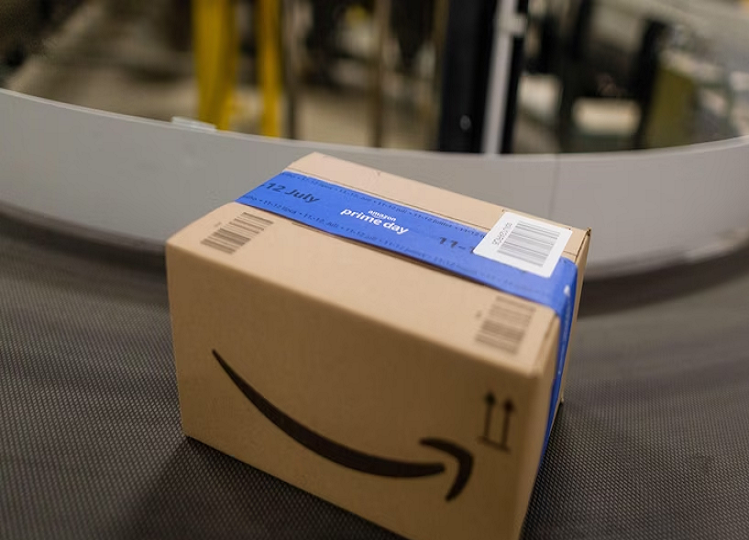Uncomfortable feeling or heaviness in the stomach after a meal is often due to overeating but, sometimes it can happen without eating too much. Swelling or pain in the abdomen accompanied by belching or discomfort in the abdomen are all symptoms of bloating. Eating too fast and swallowing air in the process, or feasting on large meals, constipation, liver disease, and pregnancy are some of the common reasons that can lead to bloating. Apart from this, certain foods are more likely to cause bloating in some people like beans, lentils, broccoli, cabbage, extra salty foods or milk, etc.

There are many ways to prevent or reduce bloating after meals. This includes consuming certain spices and herbs that aid digestion and are good for the gut. Let us know how to deal with bloating.
If you feel bloated very often, then you should change the way you eat or eat foods that are better for your digestive system. Soaking your lentils overnight can also help remove gas-causing compounds from the lentils. Legumes may contain oligosaccharides, a type of complex sugar that can cause bloating and gas. The soaking process reduces or removes this compound. Coriander, ginger, ajwain, or thing can also help you get rid of bloating.
What is bloating
If your stomach feels heavy after eating, you burp excessively after eating, there is pain in the stomach, then it is a condition of bloating. Bloating means a swollen or tight feeling of the abdomen. This is usually due to excess gas production or disturbances in the movement of the muscles of the digestive tract. It may also be accompanied by belching, gas (farting), abdominal discomfort, and a feeling of fullness.

Causes of swelling:-
- Eating too often
- Eating too much
- Indigestion due to certain foods, pregnancy, or menstruation.
Constipation, smoking, liver disease, gallstones, lactose intolerance (milk sugar), gluten intolerance (wheat protein), or intestinal disorders.
Foods that cause bloating:
Beans can cause bloating because they are high in fiber and contain oligosaccharides, which are sugars that can be difficult for the body to break down.
Carbonated drinks contain high amounts of carbon dioxide, a gas. When you drink one of these beverages, you swallow a large amount of this gas, which can become trapped and increase pressure in the stomach. This can cause uncomfortable bloating and belching.
Kale, broccoli, and cabbage are cruciferous vegetables and they contain raffinose, a sugar that produces gas and bloats your stomach.
Onion is one of the main dietary sources of fructans. These are soluble fibers that can cause bloating. Like onions, garlic contains fructans, which are FODMAPs that can cause bloating.
Raw vegetables/salads contain a lot of fiber, which is fermented by bacteria in the colon producing gas in the process. The more fiber you consume, the more gas and bloating you may experience.
According to experts, raw, cruciferous vegetables (broccoli, cauliflower, cabbage, lettuce, onion), fatty foods (oily and fried), high-fiber foods (beans, lentils, whole grains, sprouts), carbonated drinks, Soda, salty foods, processed foods and frozen foods, dairy products (milk, cheese) can all cause bloating.
Home remedies to get rid of flatulence:
-Include ginger (fresh or dried) in your diet: Ginger is a traditional remedy for digestive problems including indigestion, nausea, and bloating. It contains carminative, which helps reduce excessive gas in the gastrointestinal tract. You can add freshly grated ginger to your tea along with mint leaves, or add it to dishes that produce more gas like lentils, chickpeas, rajma soya, etc. Swelling.
Consume warm water and fennel seeds: If you do not want to prepare hot drinks, chewing fennel seeds after meals can help in the digestion process and reduce gas and bloating. Add one teaspoon of fennel to one cup of boiling water. Add some fresh ginger, a pinch of asafoetida, and a pinch of rock salt. You can also add cumin and coriander to fennel water. Mix well and filter. Sip slowly after meals.

Try the same thing with carom seeds and rock salt in boiled water. Drink it after meals.
Spices like ginger, caraway, asafoetida, coriander, fennel, and cumin not only add spice to your food but also help in reducing inflammation. Tempering these spices in a spoonful of ghee and pouring them over lentils, beans, and rice can have a medicinal effect.
Drink more water: Sugar, aerated drinks, or soda can also cause gas and flatulence. Drinking water ends these problems and helps in the treatment of constipation.
Include banana, papaya, berries, carrots, oranges, pineapple, celery, spinach, oats, and fermented foods in your diet. They contain a good amount of fiber, antioxidants, and vitamins which help in digestion and improve gut health.
(PC: Freepik)










